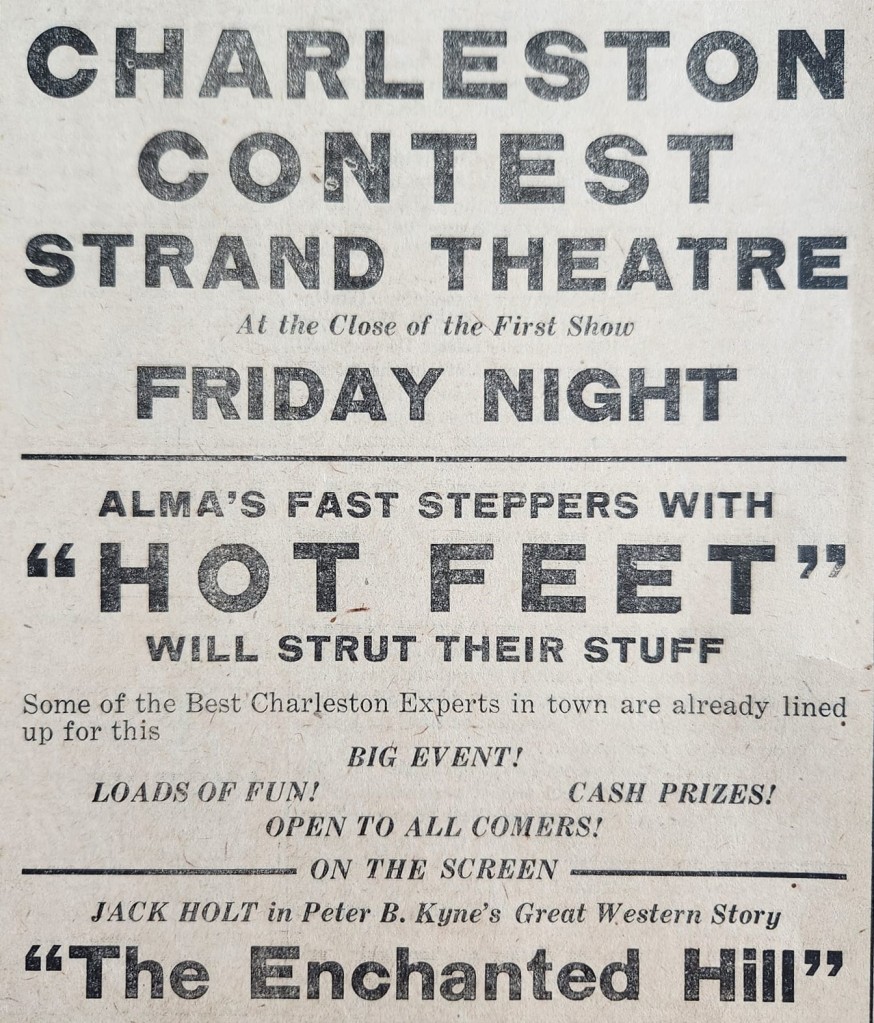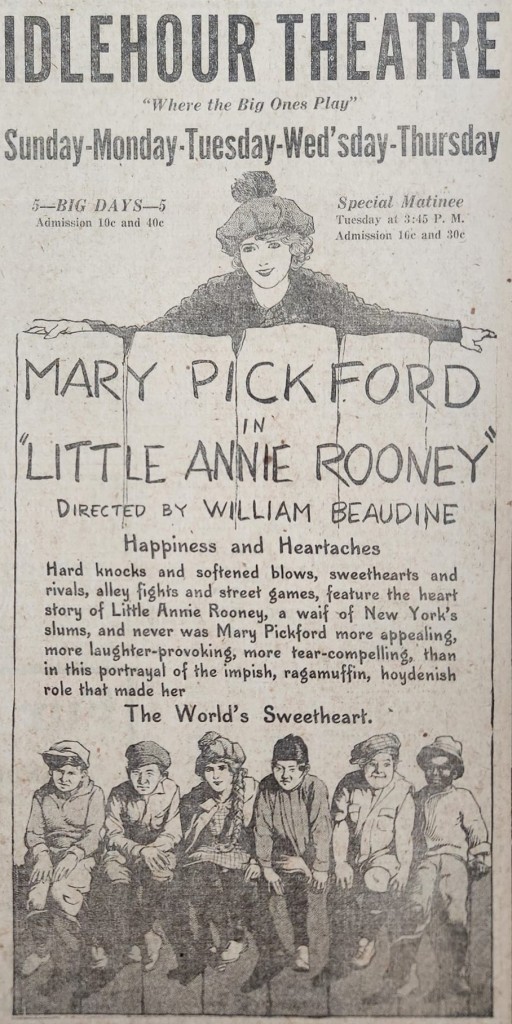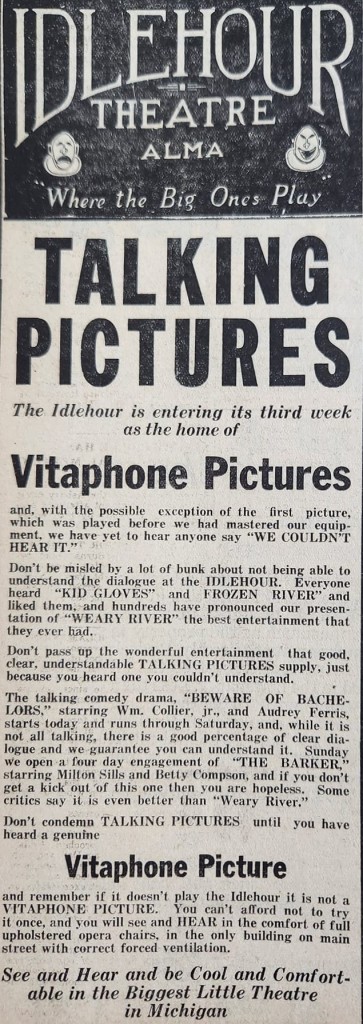


Above: The Charleston arrives in Alma. This contest led to other “amateur nights” to be held at the Strand in the late 1920s; Mary Pickford was a leading actress who won an Academy Award in the 1920s; talking pictures arrived in Alma by the summer of 1929. However, Ithaca had the honor of showing the first talking movie – beating out Alma theatres by only a few days.
As America enjoyed a period of economic prosperity in the late 1920s, Gratiot County residents flocked to the movie theaters. However, those who traveled to Alma found more than just movies for entertainment in Alma.
In March 1926, the Strand Theatre hosted a Friday night Charleston Contest for the first time. An advertisement invited those people with “hot feet” to come on stage after the first show and “strut their stuff” to show off the latest dance craze. It was so successful that Manager Miller decided afterward to hold a weekly “Amateur Night” to showcase local talent for those who could sing, dance, or play musical instruments. Soon afterward, Miller brought in the Old Fiddlers Contest, which featured music played during Michigan’s logging era. The average age of the contestants was 72 years, and Frank Newcomb from Riverdale took first place. Other entertainment that year involved a performance by Ithaca High School’s drama club and films about the military training camp at Camp Custer. Mrs. Francis King, Alma’s noted horticulturalist, also came to the Strand and gave an interesting lecture on gardening.
In 1927, some more attractions involved the first movie appearance of the famed Passion Play, “The Life of Christ,” from Baden, Germany. Alma College students came and performed “The Enemy,” a drama in wartime Austria. The Republic Motor Truck Company, which recently acquired Linn Tractors, showed movies to advertise what the tractors could do. “Fellow,” the dog with the human mind, appeared on stage and showed how he understood words just like any human being. Those who wanted to listen to the Dempsey-Tunney boxing match came to the Strand and heard it via amplifiers and loudspeakers. The United States Navy Band, sponsored by the Alma Chamber of Commerce, appeared one day and was billed as “the greatest aggregation of musical artists that ever came to Central Michigan.” Listeners were impressed with the band’s variety of music as well as the theatre’s acoustics.
Down the street, the Idlehour Theatre also continued to draw its audience. Manager Dick Rockwell and his mother went so far as to charter a plane that dropped advertising leaflets around Alma, St. Louis, and the countryside. The leaflets encouraged people to come to the Idlehour. A scary moment at the Idlehour occurred in the summer of 1927 when a film fire started in the projection room . Fortunately, the employees quickly put it out, and the theatre avoided severe damage. During this time, Dick Rockwell also continued to make new lighting and seating improvements to compete with the Strand.
In May 1928, Gilbert Genesta appeared for the last time in Alma, performing his signature water barrel trick. A local favorite, the former theatre manager and owner had been getting himself out of his trademark “barrel of death” for many years. However, tragedy occurred when Genesta died in Frankfurt, Kentucky, in 1930 while performing the stunt. Genesta did not know that his trick barrel had been dropped from a truck during unloading earlier that day. Because he did not check the barrel, he did not realize that the trick lid could not open because it was dented. The famed entertainer was laid to rest in Frankfurt.
Movies in Gratiot County forever changed with the advent of Vitaphone pictures in the late spring of 1929. The Idlehour and Strand both raced to be the first to have talking movies in the county (the Ideal Theatre in Ithaca beat them by a matter of days). The first talkie in Alma, entitled “Stark Mad,” featured a jungle adventure that took place among Mayan ruins. Over at the Idlehour, viewers were impressed with how well the sound synchronized with the acting. In another early talkie at the Strand, Mary Pickford starred in “Coquette,” a romantic drama for which she won an Academy Award. Viewers here, like at the Idlehour, were amazed at how well they could hear the movie regardless of where they sat.
The late 1920s had its share of fun. However, an economic crash was coming to Gratiot County that affected the movie industry. This crisis would be known as the Great Depression.
Copyright 2024 James M Goodspeed